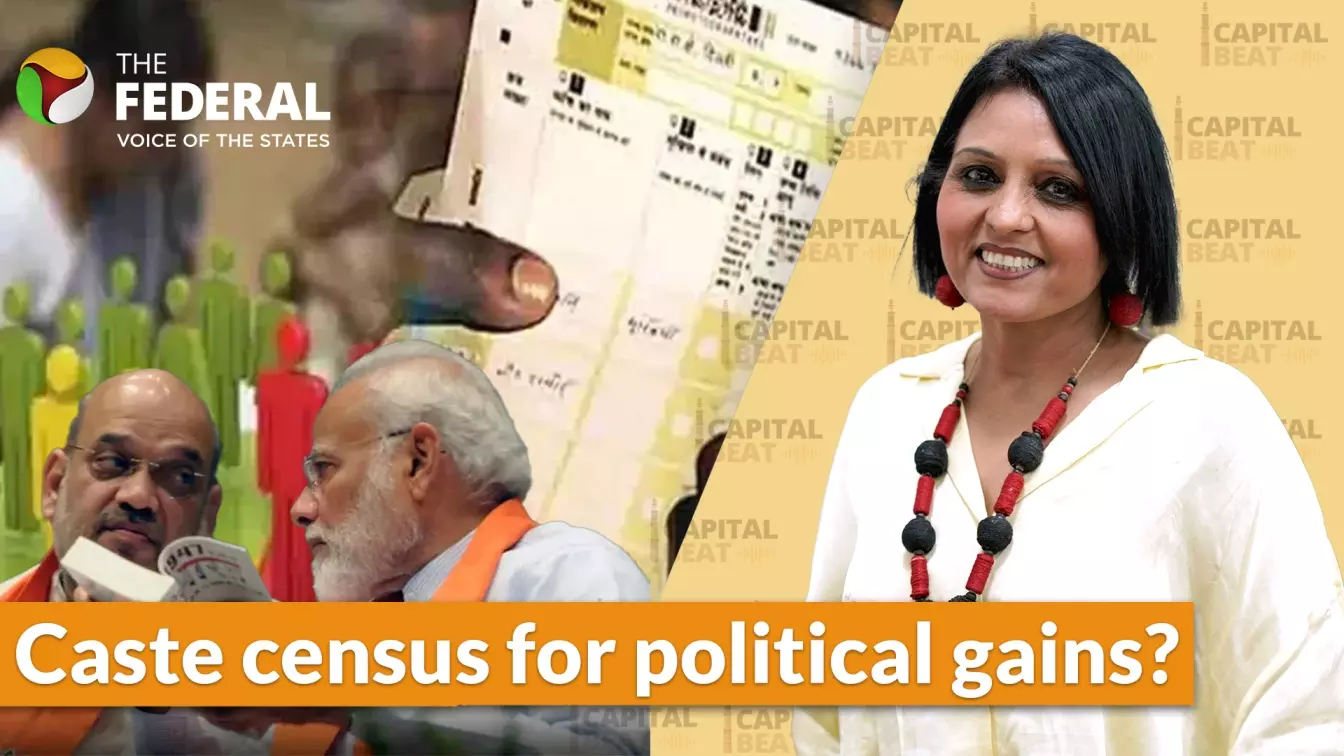
Harish Wankhede interview: Caste census for people or political vendetta?
The Modi government plans caste census alongside population count. Will it reshape India's social justice policies?

In the latest episode of Capital Beat, Neelu Vyas engages with Dr. Harish Wankhede, Assistant Professor at Jawaharlal Nehru University's Centre for Political Studies, to dissect the complexities surrounding the Narendra Modi government's recent announcement of conducting a caste census alongside the population census. With the socio-economic caste census data from 2011 still unpublished, questions arise about the methodology, intent, and potential political ramifications of this move.
In this exclusive interview, Wankhede says the BJP's case census move appears to be a strategic response to political dynamics, especially with upcoming elections.
Also read: As Centre prepares to embark on national caste census, here's how Telangana did it
Q: The Modi government has announced a caste census alongside the population census. Is there a clear model for conducting this enumeration?
Dr. Harish Wankhede: The primary demand has been to enumerate the OBCs, as SCs and STs are already categorised in the census. We have precedents like the Bihar caste survey and similar exercises in Karnataka and Telangana. These provide methodologies that can be adapted. India also has a history of commissions — Kaka Kalelkar, Mandal, Gopal Singh, Ranganath Mishra, and the Rohini Commission — that have addressed OBC enumeration. Therefore, adding a column for OBCs in the existing census framework isn't a complex task.
Q: Given the diversity within castes, how will sub-categorisation be handled?
Wankhede: The 1931 caste census by the British provides a model where SCs, STs, and the general population were demarcated, and those not in these categories were counted as OBCs. Each household can be asked to identify their category, and within OBCs, specify their caste. The challenge lies in the diversity — Yadavs in Rajasthan and Haryana differ from those in Bihar and Uttar Pradesh. Enumerators will need to generalise this diversity effectively.
Also read: Announce 'clear timeline' for every stage of caste survey: CWC to Centre
Q: Will conducting the caste census alongside the population census complicate the process?
Wankhede: Not necessarily. Adding two or three columns to the existing census form to capture OBC data is feasible. The real challenge is managing the diversity and ensuring accurate generalisation. However, the institutions responsible for the census are capable, and the complexity is more political than logistical.
Q: Should there be separate forms for the caste and population census?
Wankhede: Historically, the census has included SCs, STs, and the general category without separate forms. Similarly, OBCs can be included within the same format. There's no need for a separate caste census form.
Also read: What triggered Modi govt's surprise decision on caste census?
Q: Does the government's announcement seem well-prepared or abrupt?
Wankhede: The demand for an OBC census isn't new. Commissions and political parties, especially in Bihar and UP, have long deliberated on this. While the BJP's announcement might seem sudden, other parties like Congress have been advocating for it for over a decade. The BJP's move appears to be a strategic response to political dynamics, especially with upcoming elections.
Q: Could this announcement delay the already overdue population census?
Wankhede: The delay would depend on the government's political will. Institutions are ready to conduct the census; the issue is whether the government is willing to proceed. The absence of a specified timeline raises concerns about potential postponements.
Q: Will the government consider models from states like Telangana, Karnataka, and Bihar?
Wankhede: Absolutely. Congress has offered these models as references. While the BJP's engagement with the OBC census is relatively new, other parties have extensively deliberated on it. The BJP's move seems to be a calculated attempt to address shifting political grounds, especially in states like Bihar and UP.
Q: Could the BJP's announcement be a strategic move to co-opt both Mandal and Kamandal politics?
Wankhede: Yes. The BJP is attempting to balance its traditional Hindutva base with OBC welfare initiatives. By conducting the caste census, they aim to gather data that can inform new policies and reservations, thereby reinforcing their support among OBCs.
Q: There's concern that the caste census data might not be published, similar to the 2011 SECC. Could this happen again?
Wankhede: That concern is valid. The 2011 SECC data wasn't published, yet it was used for welfare schemes. The fear is that the new data might also be withheld and utilised selectively for political gains. Ultimately, the implementation of welfare policies depends more on political will than on data availability.
(The content above has been generated using a fine-tuned AI model. To ensure accuracy, quality, and editorial integrity, we employ a Human-In-The-Loop (HITL) process. While AI assists in creating the initial draft, our experienced editorial team carefully reviews, edits, and refines the content before publication. At The Federal, we combine the efficiency of AI with the expertise of human editors to deliver reliable and insightful journalism.)

